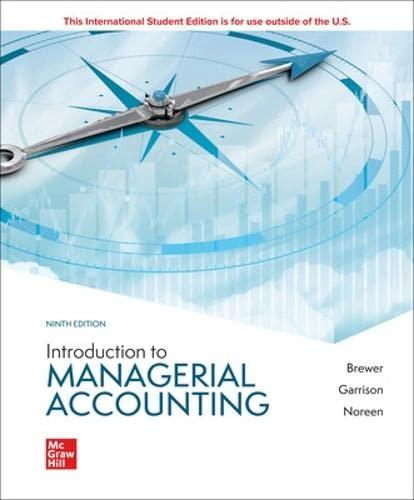EXERCISE 213 Departmental Predetermined Overhead Rates LO21, LO22, LO24 White Company has two departments, Cutting and Finishing.
Question:
EXERCISE 2–13 Departmental Predetermined Overhead Rates LO2–1, LO2–2, LO2–4 White Company has two departments, Cutting and Finishing. The company uses a job-order costing system and computes a predetermined overhead rate in each department. The Cutting Department bases its rate on machine-hours, and the Finishing Department bases its rate on direct laborhours.
At the beginning of the year, the company made the following estimates:
Department Cutting Finishing
. . . . . . . . . . . . . 6,000 30,000 Department Cutting Finishing . . . . . . . . . . . . . . . 48,000 5,000 $264,000 $366,000 $2.00 —
— $4.00 Required:
1. Compute the predetermined overhead rate for each department.
2. The job cost sheet for Job 203, which was started and completed during the year, showed the following:
Department Cutting Finishing . . . . . . . . . . . . . 6 20 . . . . . . . . . . . . . . . . 80 4 . . . . . . . . . . . . . . . $500 $310 . . . . . . . . . . . . . . . $108 $360 Using the predetermined overhead rates that you computed in (1) above, compute the total manufacturing cost assigned to Job 203.
3. Would you expect substantially different amounts of overhead cost to be assigned to some jobs if the company used a plantwide predetermined overhead rate based on direct labor-hours, rather than using departmental rates? Explain. No computations are necessary.
Step by Step Answer:

Introduction To Managerial Accounting
ISBN: 9781265672003
9th International Edition
Authors: Peter C. Brewer , Ray H. Garrison, Eric Noreen





